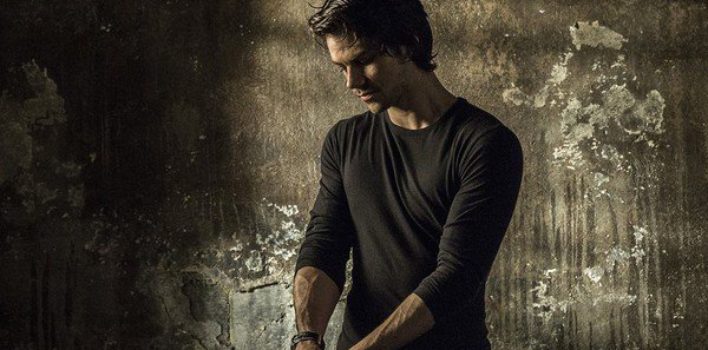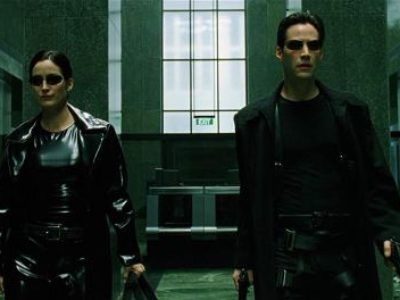Review| American Assassin
 Had Michael Keaton not reinvigorated his acting career in the last four years, this is probably a movie that comes and goes on the big screen but eventually finds most of its viewership coming via Redbox. Nothing about the trailer or the synopsis struck me as particularly unique. The rest of the lead roles appeared to be pretty straight-forward. But boy, the potential for Keaton to bring his intensity to a spy thriller was enough to bring me to the theater. As the film progressed and the predictability ramped up, I was feeling both vindicated in my expectations for Keaton, but also underwhelmed in my estimation for his impact on the film as a whole.
Had Michael Keaton not reinvigorated his acting career in the last four years, this is probably a movie that comes and goes on the big screen but eventually finds most of its viewership coming via Redbox. Nothing about the trailer or the synopsis struck me as particularly unique. The rest of the lead roles appeared to be pretty straight-forward. But boy, the potential for Keaton to bring his intensity to a spy thriller was enough to bring me to the theater. As the film progressed and the predictability ramped up, I was feeling both vindicated in my expectations for Keaton, but also underwhelmed in my estimation for his impact on the film as a whole.
Dylan O’Brien (Mazerunner) plays Mitch Rapp, a twenty-something self-trained assassin with an ax to grind. A horrible tragedy in his life drives him to seek out a terrorist cell across the globe, and seek his revenge on one man specifically. Little does he know the CIA is on him the entire time, and director Irene Kennedy (Sanaa Lathan, Love and basketball) has decided to make him of her pet project and use his drive for revenge to turn an American citizen into an American assassin.
The opening scene where said tragedy occurs for Rapp is quite engaging, even if it does double as a commercial for the waterproof capabilities of Samsung’s latest phone. I don’t necessarily want to overlook that, because there are other such problems in the film, but the film deserves credit for a strong opener. The loss which Rapp suffers here looms large for him through the remainder of the film. It sparks in him the desire for revenge which he superficially equates with justice. Here we can begin to psychoanalyze from a Christian perspective and ask if it is the case that Rapp is seeking justice. Well, yes and no.
 It’s true of course that he wants those who brought violence to pay for their crime. But for Rapp, it’s more about the harm caused to him specifically. It’s clear well into the second act that Rapp’s anger is constantly at the point of boiling over and all proclamations of “but he’s a bad guy” could just as easily be replaced by “but my fiancé is dead”. It’s not justice he seeks, it’s personal vengeance. The words of Paul in Romans 12 could not be more aptly applied. Or could they? The traditional reading of the “wrath of God” lines in Romans 12, and the reading I am partial to, indicates that God’s wrath (true justice) is accomplished through objective punishment by the governing authorities. When we seek our own revenge, our judgment is clouded and we put ourselves in the place of God’s wrath. This is where the “hook” of American Assassin comes in; the CIA uses Rapp’s rage to convert him to an assassin and do their bidding. Now the one who seeks his own vengeance is in position to also bring wrath on those who do evil. Talk about a moral conflict.
It’s true of course that he wants those who brought violence to pay for their crime. But for Rapp, it’s more about the harm caused to him specifically. It’s clear well into the second act that Rapp’s anger is constantly at the point of boiling over and all proclamations of “but he’s a bad guy” could just as easily be replaced by “but my fiancé is dead”. It’s not justice he seeks, it’s personal vengeance. The words of Paul in Romans 12 could not be more aptly applied. Or could they? The traditional reading of the “wrath of God” lines in Romans 12, and the reading I am partial to, indicates that God’s wrath (true justice) is accomplished through objective punishment by the governing authorities. When we seek our own revenge, our judgment is clouded and we put ourselves in the place of God’s wrath. This is where the “hook” of American Assassin comes in; the CIA uses Rapp’s rage to convert him to an assassin and do their bidding. Now the one who seeks his own vengeance is in position to also bring wrath on those who do evil. Talk about a moral conflict.
Here we might also begin to question what the film is saying, if anything, about the nature of an American assassin instead of a Canadian assassin, or a Spanish assassin. Does Rapp’s lust for revenge and his personal hatred of his enemy embody a typically American attribute? While I don’t necessarily think the film is pushing this narrative, it is an interesting discussion point to be had. Does our personal connection with terrorism via experiences like 9/11 predispose us to a hatred of certain enemies at the expense of seeking true justice? I think in certain cases this is probably true, but is it the case in a broader sense? American Assassin doesn’t really touch on that, so the operative term feels like little more than a geographic reference point.
To ensure his conversion to CIA operative, Rapp begins to train with Stan Hurley (Keaton), a deep-cover agent who uses unorthodox training methods to prepare assassins for specific field requirements. Much is made of Hurley’s tactics, how he prepares the men and women he trains, and in more subtle ways how he relates to them. He’s very detached in most cases, but in some he forms a personal bond with his disciples. Such is the case when we meet our main antagonist; Ghost (Taylor Kitsch).
 When read on paper, the film begins to feel very cookie-cutter: hero is wronged, hero seeks revenge, hero is trained by idol and must battle idol’s former disciple who happens to be our hero’s mirror image. I mean come on, Kitsch and O’Brien are even made to look nearly identical for the film. Unfortunately we never venture outside the norm and into any depth with the remainder of the film. Aside from some pretty impressive visuals on the sea related to an explosion, much of the third act feels very phoned-in. Kitsch’s character is woefully underdeveloped and has head-scratchingly bad motivation which screams of lazy writing. All in all, while this film is one that can potentially spark some interesting conversations, it’s not one worth leaving the house to seek out.
When read on paper, the film begins to feel very cookie-cutter: hero is wronged, hero seeks revenge, hero is trained by idol and must battle idol’s former disciple who happens to be our hero’s mirror image. I mean come on, Kitsch and O’Brien are even made to look nearly identical for the film. Unfortunately we never venture outside the norm and into any depth with the remainder of the film. Aside from some pretty impressive visuals on the sea related to an explosion, much of the third act feels very phoned-in. Kitsch’s character is woefully underdeveloped and has head-scratchingly bad motivation which screams of lazy writing. All in all, while this film is one that can potentially spark some interesting conversations, it’s not one worth leaving the house to seek out.







